Sluggish start for the economy won’t hinder ANZ, shareholders told
ANZ is preparing for a sluggish start to 2024, but has told shareholders that its business borrowers and household customers were still tracking well, despite a cost-of-living blowout.
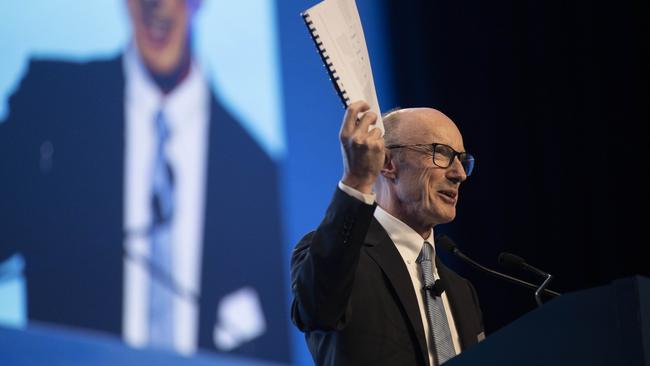
ANZ is preparing for a sluggish start to 2024, but has told shareholders that its business borrowers and household customers were still tracking well, despite a cost-of-living blowout.
Chairman Paul O’Sullivan, speaking as the bank delivered its pre-Christmas annual meeting on Thursday, said the lender was preparing for economic headwinds with high inflation and surging living costs.
The RBA increased the cash rate in November taking the floor rate for banks to 4.35 per cent, its highest since November 2011, but held steady at its December meeting.
ANZ addressed shareholders after handing down a $7.4bn cash profit in November, driven by its success riding the back of rates movements.
It was confident household customers were “still in reasonable shape” in the wake of the rate rises, and Mr O’Sullivan noted that figures from the RBA and the bank supported the outlook.
However, he said many customers were “feeling the financial pressure and indeed some may find themselves in financial difficulty over the coming year”.
“This is where ANZ’s financial strength comes into play – we are well prepared with high levels of provisions, capital, liquidity and funding which allows us to help customers in need,” he said.
Commonwealth Bank also struck a similar tone on Thursday, noting that higher interest rates were slowing the economy without tipping the country into recession.
CBA chief economist Stephen Halmarick said rates could be cut by 75 basis points in the second half of 2024 and a further 75 basis points reduction was likely for 2025.
Australian three-year bond rates reflected a moderating of the inflation outlook, hitting their lowest point since June after spiking in November.
The Australian Bureau of Statistics revealed household wealth had lifted 2.3 per cent in the September quarter, driven by land values and house prices, despite interest rate rises.
Deposits into transaction accounts were up $24.4bn in the period, and the ABS said much of this was ploughed into offset accounts in a bid to plug the gap from higher borrowing costs.
ANZ chief executive Shayne Elliott said the bank had started the new financial year in a strong position, and that revenues were “in line with the second half of the 2023 financial year”.
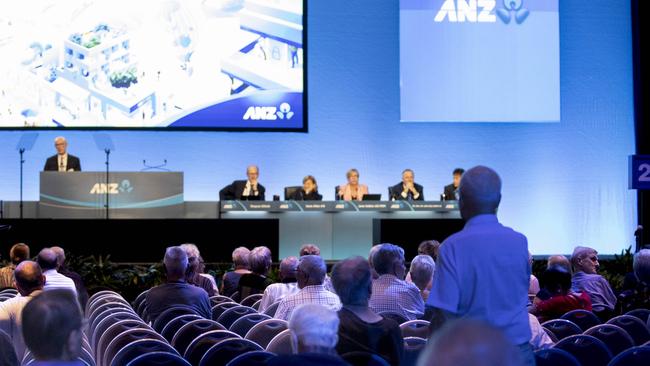
Mr Elliott said ANZ was experiencing strong performance across its divisions “despite high levels of competition and concerns around a slowing of the economy”. He said lending was strong across the bank’s retail and commercial franchises.
ANZ has been criticised by banking rivals for its low market pricing, and some have claimed it was writing loans below the cost of capital, but Mr Elliott defended the bank’s lending.
“We want to grow our Australian home loan book profitably by continuing to offer reliable turnaround times, and in line with that we are competitive but not market leading on pricing,” he said.
ANZ’s board recognised the bank’s performance through the choppy market, handing Mr Elliott 96 per cent of his maximum performance bonus for the period, up from the 74 per cent paid in the prior period.
Mr Elliott said the markets business in ANZ’s institutional arm “has had a good start”, with revenues in the first quarter in line with prior results, but coming in stronger than the second half of 2023.
“Our focus on high-quality customer selection and prudent risk appetite means credit quality remains strong, with no material increase in credit costs in the quarter,” he said.

He said ANZ was well positioned to manage the economic swings in Australia and New Zealand, and that both countries were “remarkably robust”.
“But the outlook is certainly more challenging, with interest rates and inflation expected to remain high, geopolitical risks rising and capital flows changing faster than we have seen in some time,” he said.
“Our economists expect slower economic growth in both Australia and New Zealand in 2024 and only modest movements in interest rates and inflation.”
But Mr Elliott said there was a “bright side” with household balance sheets, strong housing markets, business spending, and government investment, supporting domestic spending in both Australia and New Zealand.
“Even so, pockets of weakness are already emerging, and we know this can disproportionately impact those with less secure employment, on lower incomes or renters, many of whom are younger,” he said.
“Thankfully, for those with existing loans, even first-home buyers, the number of customers experiencing financial difficulty remains modest by historical standards.”
Mr Elliott said ANZ was seeing low levels of hardship, with many borrowers “back on track” after first seeking assistance.
“In the coming year we expect to be required to provide more support for our customers, and our strong results mean we stand ready and able to do so,” he said.
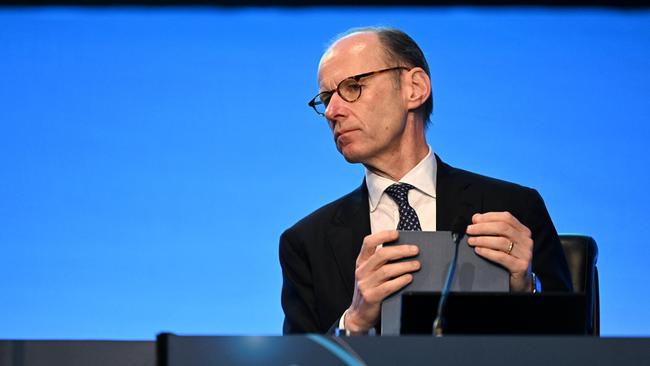
ANZ’s latest economic insights report, published on Thursday, revealed spending had proven soft in December and that the Black Friday shopping boom had merely brought forward demand.
ANZ faces several questions about its outlook. It awaits a decision from the Australian Competition Tribunal after making a $4.9bn bid for Suncorp’s banking arm in a bid to leapfrog rivals in the retail lending market.
Mr O’Sullivan said the addition of Suncorp Bank would “add significant scale to our retail and commercial businesses” in Queensland.
But the bank has had to defend its track record over carbon emissions.
Mr O’Sullivan and Mr Elliott pushed back against criticism, saying it was invested in lending to finance the transition and “not to cut and run from these customers”.
“We’ve been transparent that ANZ has a relatively large oil and gas exposures and that is certainly not something we shy away from. In fact, it makes our role in the energy transition all the more important,” Mr O’Sullivan said.






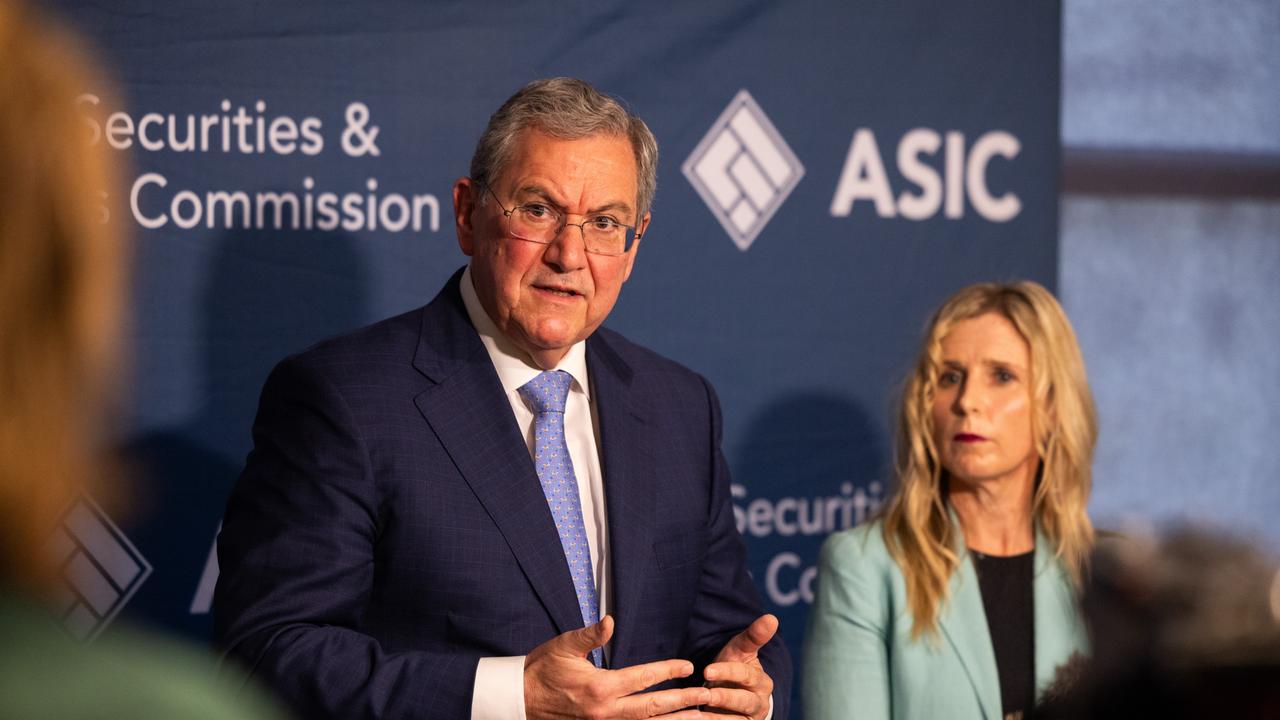
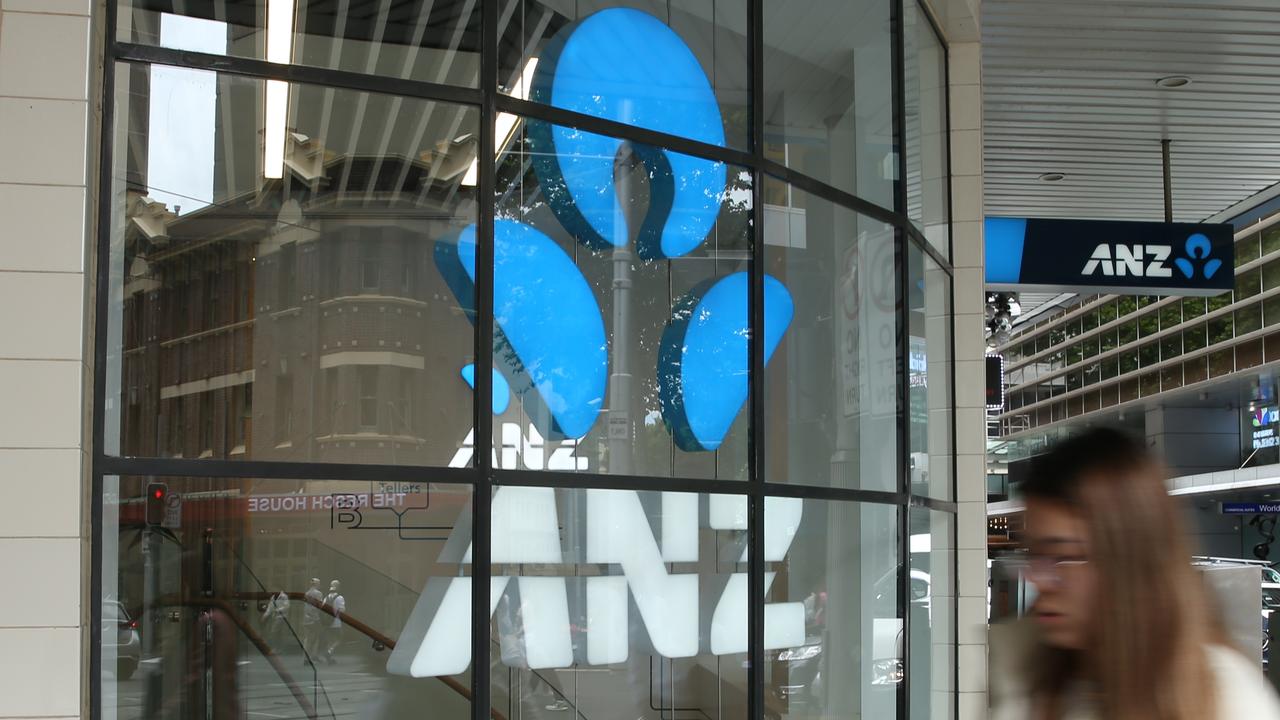
To join the conversation, please log in. Don't have an account? Register
Join the conversation, you are commenting as Logout